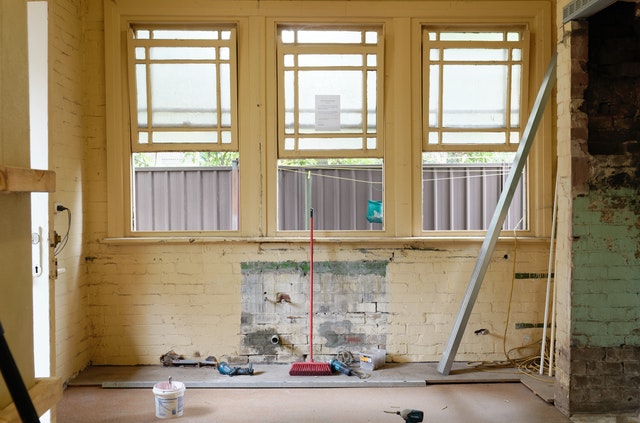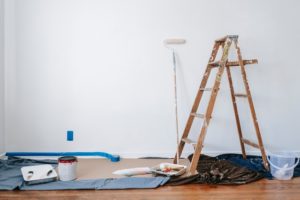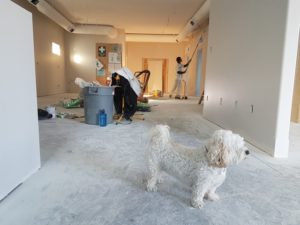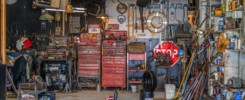
Hello Again, Chris Town, Owner Of Town Construction And Development And Here With Some More Great Tips On the pros and cons of buying a fixer-upper.
What is a fixer-upper? A house on the market that is in need of significant repairs. As such, it comes at a lower price. Many people invest in fixer-uppers intending to flip them to make a profit. On the other hand, others simply can’t find their dream home, so they decide to buy a fixer-upper and turn it into one. Whatever the reason, there are a lot of factors you need to consider before purchasing this type of property. Of course, there are both the pros and cons of buying a fixer-upper. If you want to know what they are, keep reading this article for some helpful info!
Pros of buying a fixer-upper
Lower Purchase Price
One of the most significant benefits of fixer-uppers is that you can buy them for a much lower price. This means the size of your down payment will be significantly lower as well. Therefore, you’ll be able to purchase a house in a neighborhood that’s typically out of your budget. How is this possible? For example, if you’re looking to buy a house in a neighborhood with a median price of $500,000 and find a fixer-upper that needs $150,000 worth of repairs, you can expect to pay $350,000 or less that home.
When buying a fixer-upper, you can come across some pretty great benefits.
Additionally, several mortgage and loan packages are designed specifically for fixer-uppers. These loans are intended to help local communities and neighborhoods. With these options, you might be able to secure a reasonable interest rate and a decent mortgage.
Less Competition
It’s no secret that there is less competition when buying a house that needs to be revived. People usually don’t have enough time, money, and energy to invest in a fixer-upper. That’s why they typically look to purchase a move-in-ready house. As fixer-uppers are not in high demand, it’s only logical that the people who decide to go for them won’t have to go into bidding wars. This implies buyers can have the upper hand in the negotiation process. Moreover, if the fixer-upper has been on the market for a while, the seller might be open to making some compromises (credits toward repairs, home warranty coverage).
You can customize it
Buying a fixer-upper means you will be able to create the home that suits your want and needs precisely. From the color of kitchen countertops to the fireplace to landscaping to bathroom tile – you can personalize it all and make it exactly as you always imagined it to be. You will be involved in every decision and the process of renovation altogether. This practically means
you’ll be able to create the home of your dreams. This is one of the reasons why people decide to buy a fixer-upper. Sometimes, there is no house on the market that suits all your needs and wants, so you have to make one.
High ROI
If you know what to look for, there are far more options to significantly boost your initial investment with a fixer-upper than there are with a move-in-ready property. As with any large purchase, do some calculations to figure out how much your remodeling ambitions will cost and whether you’ll be able to recoup that money once you decide to resell the house.
Home improvements with the highest ROI are minor kitchen and bathroom remodels, curb appeal boosts, such as front door updates or upgraded veneers. On the other hand, you don’t want to invest in building a deck, turning your garage into a home office, or making a huge master suite.
Cons of buying a fixer-upper
Uncertain budget & unexpected costs
One of the biggest cons of buying a fixer-upper is not being able to know how much money you’ll spend in the end on all the renovations and repairs. You can make some calculations and determine the approximate budget. However, you must prepare for unpleasant surprises that lead to additional costs. Unfortunately, unexpected costs are part of every renovation process. Given that fixer-uppers can be full of hidden damages, you need to add at least 15% more to your budget for these surprises.
Unexpected costs, timely process, and living in a construction zone are all major cons of fixer-uppers.
Furthermore, homebuyers have certain rights, so make sure you know yours. Even though someone is selling you their house as is, it doesn’t mean they don’t need to tell you about all the damages and repairs you’ll need to do. In fact, they are required by law to do so! If they misrepresent their property to the buyer, there can be some major consequences.
It’s a time-consuming project
Since fixer-uppers are in desperate need of rehabilitation, people who buy it must prepare for a very long process. One of the biggest issues with fixer-uppers is that it’s incredibly time-consuming. In addition, since there are always some unpleasant surprises, you’ll probably lose more time than you initially estimated.
That’s why it’s crucial to do a home inspection before starting the remodeling process. Even though home inspection can be costly, it will save you a lot of money in the future. You’ll know what needs to be fixed and approximately how long this renovation process will take.
Living in a construction zone
If you sold your home and then purchased a fixer-upper, you’ll have to figure out your living situation for the next couple of weeks, months, or even years (if things get delayed). Deciding to live in a construction zone is one of the options, but it’s not an ideal one. Especially if you
have kids, pets, and things get complicated in the meantime. You may end up living in a construction zone way longer than you expected.
That’s why the crew from Best Cross Country Movers suggests finding a local moving company that can rent you a bigger storage unit where you can put all your belongings you can’t use until the renovation is finished. It’s a smart and safe idea to keep your stuff in one place out of your house but still near you.
Dealing with a lot of stress
Living in a construction zone, breaking the deadlines and your budget, and not agreeing on anything with your partner is challenging. All these factors can cause stress, especially if you have to deal with them at once. Unfortunately, this will probably be your life for a couple of weeks or months if you decide to buy a fixer-upper.
Final thoughts on buying a fixer-upper
Buying a house is a challenging process, especially if you’re thinking about buying a fixer-upper. Whether or not it is a good idea to purchase a fixer-upper depends on many factors. Do you have enough time, money, and energy to invest in a fixer-upper? Are you ready to live in a construction zone for some time? Of course, it’s always good to have less competition and put in a lower down payment. And the idea of creating your dream home is more than appealing. In the end, it’s absolutely up to you and your abilities wants, and needs. Good luck!
![]()
“Be good to your house and your house will be good to you:

All solutions for home living have some advantages and disadvantages…“There are no perfect solutions out there, only the ones that are perfect and work for you.”
Chris Town
![]()
Kindly rate our blogs by clicking on the Google link below:
https://g.page/r/CQESWldbXvqJEAg/review



